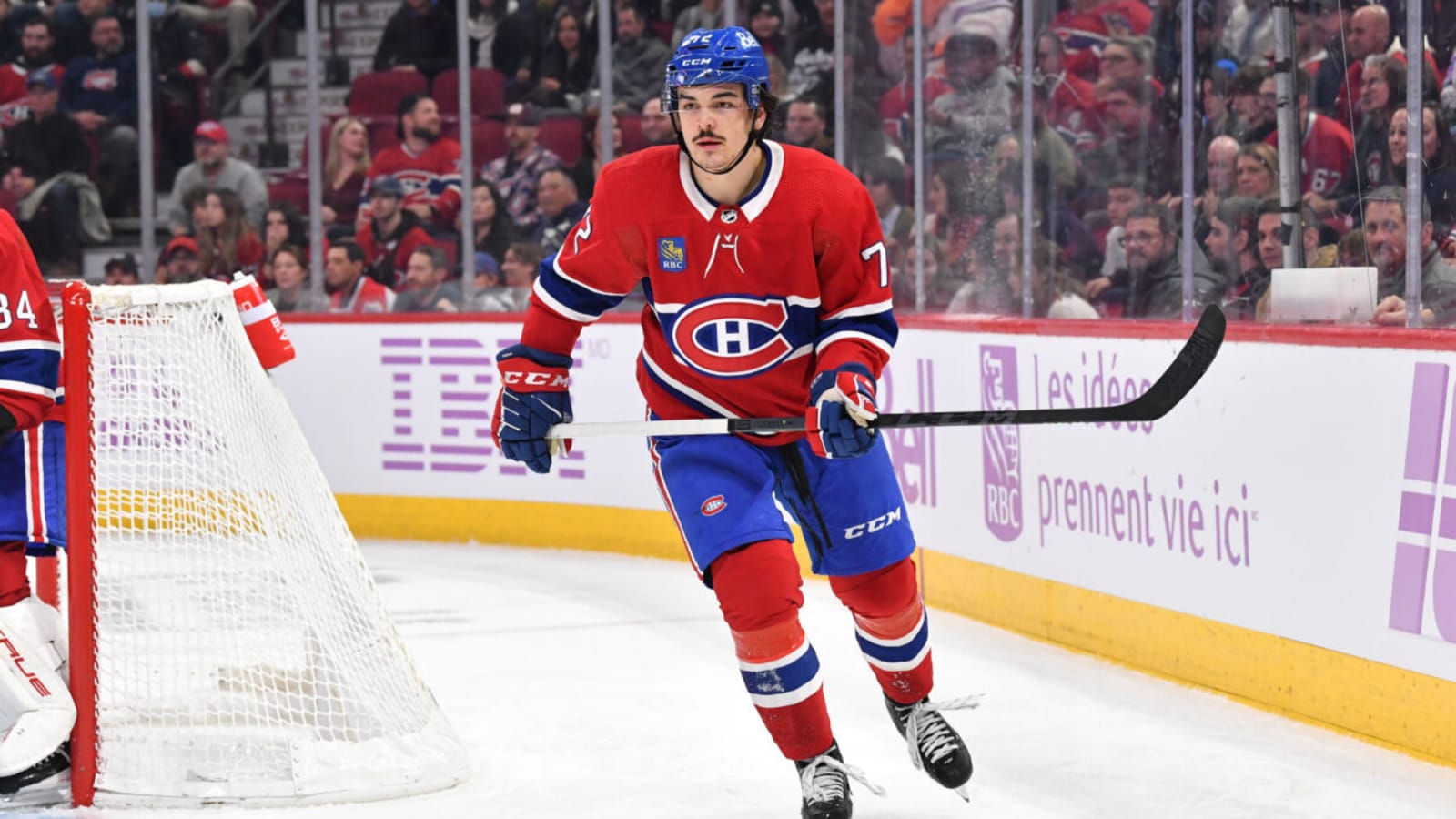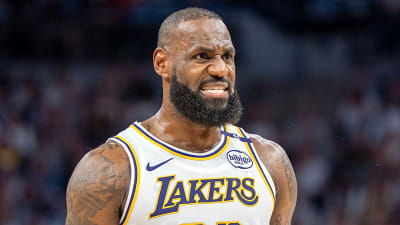
There’s no escaping the overriding narrative of the Montreal Canadiens’ five-game defeat to the Washington Capitals. You just need to go back to Game 4, in which they held a 2-1 third-period lead only for the Caps to wrest momentum away from the Habs following a huge hit by Tom Wilson on Alexandre Carrier.
Canadiens Have Plenty of Size of Their Own
If you were to watch any of the media coverage after that game, an eventual 5-2 Capitals win, the general consensus had been the hit changed the series. You can practically read the headlines to come in the days to follow, after the Caps beat the Habs 4-1 to end the series the next game.
There will be an overemphasis on the Capitals’ size and the Canadiens’ lack thereof. Supposed experts will make it a surefire talking point that the Habs need a Wilson of their own. The issue is it will all be an exaggeration and any action taken on part of the Habs to address it will be an overcorrection to a non-existent problem.
The fact is the better team won. There should be no disputing that. That supposed series-altering hit came with the Capitals up 2-1 in the series and the Canadiens nursing a slim one-goal lead. Even had they held on to win that game and tie the series at two games apiece, they would still have had to beat the team that led the Eastern Conference in the regular season (as eighth seeds).
The other fact is the Canadiens actually outhit the Capitals in three of the five games and 184-160 overall. And yet another fact that is of critical importance for this piece’s purposes is many of the same talking heads had pinpointed head coach Martin St. Louis opting to finally debut defenseman (and enforcer) Arber Xhekaj in Game 3, which the Habs won decisively, as the turning point in the series… before it turned again the very next game with the Wilson hit, of course. That’s more an argument that St. Louis got outcoached by Spencer Carbery, the Jack Adams Award favourite, than Wilson won the Caps the series on his own.
Where’s that narrative?
The Canadiens don’t need a “Weeping Wilson,” as he should be referred to from this point on, in their lineup. Granted, he and the Capitals earned the last laugh by winning the series, but you’re also talking about a 31-year-old with a $6.5 million cap hit up until 2031, one who also has a reputation for crossing the line.
Wilson may have scored an impressive 33 goals and 65 points this season. He also scored 35 total points in 2023-24. What’s infinitely more likely? That Wilson, who had only once before scored more than 50 points, suddenly found another gear in his offensive game? Or that Wilson, on an offensive powerhouse that finished second in the league in goals scored, was incredibly well-insulated to the point he managed to shatter his previous career highs?
Anderson and Xhekaj Address Canadiens’ Needs for Physicality
The truth of the matter is the Canadiens have size and toughness in Xhekaj, who’s 6-foot-4 and 240 pounds. They also have it in Josh Anderson (6-foot-3, 226 pounds), who just won the Jacques Beauchamp-Molson Trophy as the team’s top unsung hero in the regular season. While they may be one of the shortest teams in the league, they’re also healthily in the league’s top half when ranking the heaviest, per Left Wing Lock.
You know what else? In spite of inevitable calls to re-sign Anderson when he becomes an unrestricted free agent in 2027, as a direct result of this playoff defeat, the Canadiens should let him walk. It’s not as much an indictment of Anderson as it is of his contract, which pays him a $5.5 million cap hit when he’s only managed to score 32 points or less in his five seasons with the Habs. There’s no doubt he provides value, but he’s proven to be most effective in a bottom-six role, which should call for a far-lower salary ideally. Taking into account the fact he’ll be 33 by the time his contract expires, it would only be logical for the organization to look elsewhere, perhaps even internally, for someone to fill his skates.
However, that’s admittedly an issue for a few years down the road. Right now, the Canadiens are a team that just snuck into the postseason with 91 points after going on a torrid 32-18-8 run since early December that translated into an impressive .621 points percentage, which over an entire season would have tied the Tampa Bay Lightning… the same Lightning that just also lost their first-round series in five games to the Florida Panthers… the same Lightning that a few years ago won two straight Stanley Cups.
Do the Lightning suddenly need to change things up? Perhaps, but it’s a completely different set of circumstances in that they’re an older team that has a) played an awful lot of hockey over the last decade and b) has lost in the first round in each of the last three years. In contrast, the Canadiens are literally one of if not the absolute youngest team(s) to ever make the playoffs.
Canadiens Already Have an Identity
The narrative shouldn’t be that the Canadiens got outmuscled. It’s more about how they’ve improved in the standings each season since they finished last in 2022. It’s about how they made the playoffs against all odds and simply ran into a team with more experience, experience that these Habs have since begun to gain, which they can translate into long-term success regardless of how one series ended.
Maybe Wilson was an X factor. Maybe the Canadiens would have come all the way back to win had he not hit Carrier that one split second in a 60-minute Game 4… but can anyone say with a straight face that the Habs were anyone’s pick to win it all heading into the playoffs anyway? When few if any analysts so much as picked them to make the playoffs at the start of the season? This defeat isn’t a tragedy. It’s the natural order of things.
The Canadiens won over their fans this season through inspired play and a never-say-die attitude that earned them a tie for the most third-period comebacks in the league. That was on display as late as in Game 5, when, behind by three goals to start what would be the final frame of their season, they scored one and had some legitimately believing they could pull off another come-from-behind victory until a late empty-net goal sealed it.
However, all that really means is the Canadiens, who only scored first once in this series, consistently suffered from bad starts this season. They didn’t have a horrible start to Game 5 specifically per se, dictating the play for a good chunk of the first. They still allowed the first three goals in a must-win situation.
All that really means is the Canadiens didn’t get eliminated because of a single hit. It also means they’ve got a lot to work on for next season. However, they’ve also undeniably got a lot off of which to build, including youth, talent, determination, and potential for the future. That’s the narrative on which everyone should be focusing. Rest assured, a new chapter’s just beginning… and it’s got nothing to do with the same old lack of size that has seemingly characterized this team for decades. For another cliched narrative, classify this loss under the trials and tribulations the Habs must go through before they learn to win on their own.
It may not work in the media, because you won’t be able to prove it for years from now. But you can also easily disprove the Wilson one. This one at least makes more sense.
More must-reads:
- Norris Trophy breakdown: Will Cale Makar come out on top?
- Panthers continue to dominate Battle of Florida
- The 'Most 30-goal seasons in NHL history' quiz
Breaking News
Trending News
Customize Your Newsletter
 +
+
Get the latest news and rumors, customized to your favorite sports and teams. Emailed daily. Always free!








